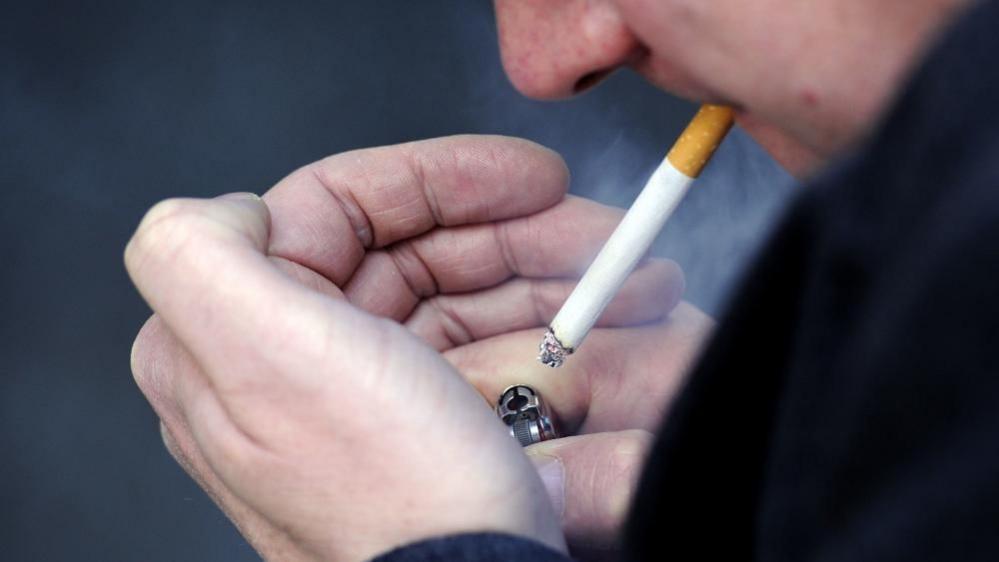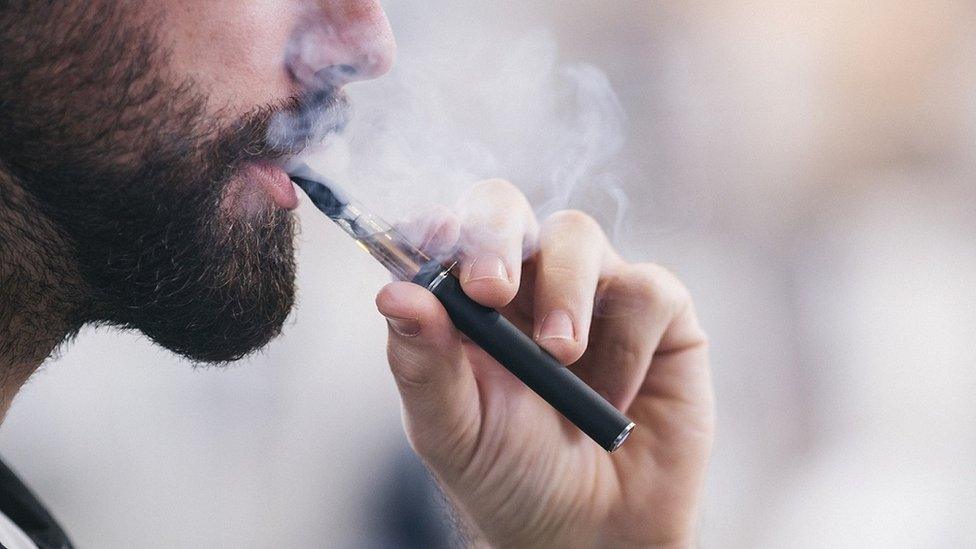Study finds cash rewards help smokers quit

"We wanted to find out if giving people rewards helps them to quit smoking in the long term," said Prof Caitlin Notley
- Published
Giving money, vouchers or returning cash deposits to people who smoke has helped them give up the habit, new research has found.
A study led by the University of East Anglia (UEA) found that offering rewards helped people quit smoking with success rates continuing long after incentives had stopped.
The research also explored how offering cash rewards could help pregnant women to stop smoking.
Caitlin Notley, a professor of addiction sciences at Norwich Medical School, said: "We are now very confident that incentives help people, and pregnant people, to quit smoking better than not offering incentives."

Smoking during pregnancy is one of the leading causes of poor birth outcomes including stillbirth and miscarriage, researchers said
Incentives for Smoking Cessation has been published in Cochrane Review and the study is in collaboration with the UEA, the University of Oxford, University of Edinburgh and the University of Massachusetts Amherst.
Prof Notley said: "The evidence also demonstrates that the effectiveness of incentives lasts even after rewards have stopped."
Researchers recruited more than 21,900 people in 48 studies to test different reward schemes to help people quit.
It found for every 100 people who received financial incentives, 10 people were likely to successfully quit smoking at six months or longer, compared to seven in 100 people who did not receive financial incentives.
Success rates continued after the incentives had ended.
For every 100 pregnant women who received a cash reward, 13 were likely to successfully quit smoking at six months or longer, compared to six in 100 who did not receive financial incentives, it said.
Prof Linda Bauld, the director of the Spectrum Research Consortium and the study's co-author, said: "This evidence supports the case for continued investment in the existing national financial incentive scheme for pregnant women in England."
Jamie Hartmann-Boyce, the assistant professor of health policy and management from the University of Massachusetts Amherst, said: "There's a lot of evidence to suggest that this intervention is acting on the psychological reward systems in the brain, which we know are heavily involved with nicotine addiction."
Get in touch
Do you have a story suggestion for Norfolk?
Follow Norfolk news on BBC Sounds, Facebook, external, Instagram, external and X, external.
Related topics
- Published28 February 2024

- Published19 August 2022

